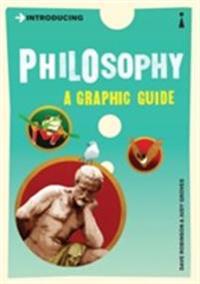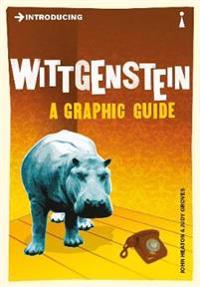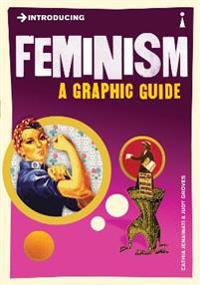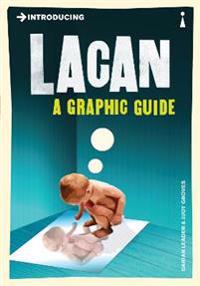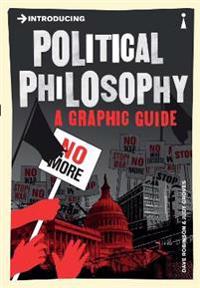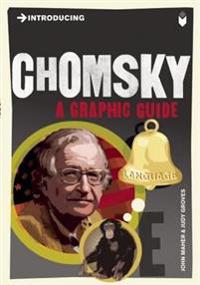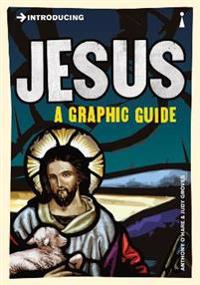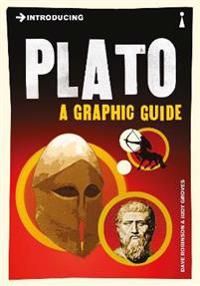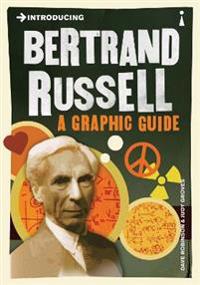Introducing Philosophy (Pocket)
avDavid Robinson, Judy Groves, David Robinson
ISBN: 9781840468533 - UTGIVEN: 200809Philosophers have always enjoyed asking awkward and provocative questions, such as: What is the nature of reality? What are human beings really like? What is special about the human mind and consciousness? Are we free to choose who we are and what we do? Can we prove that God exists? Can we be certa[...]
Introducing Wittgenstein (Pocket)
avJohn Heaton, Judy Groves, John Heaton
ISBN: 9781848310865 - UTGIVEN: 200510This is a superlative graphic guide described as 'warm, witty and wise' by Jonathan Ree to an enigmatic master of twentieth-century philosophy.[...]
Introducing Feminism (Pocket)
avCathia Jenainati, Judy Groves, Cathia Jenainati
ISBN: 9781848311213 - UTGIVEN: 201009The term 'feminism' came into English usage around the 1890s, but women's conscious struggle to resist discrimination and sexist oppression goes much further back. This completely new and updated edition of "Introducing Feminism" surveys the major developments that have affected women's lives from t[...]
Introducing Lacan (Pocket)
avDarian Leader, Judy Groves, Darian Leader
ISBN: 9781848311831 - UTGIVEN: 201009Jacques Lacan is now regarded as a major psychoanalytical theorist alongside Freud and Jung, although recognition has been delayed by fierce arguments over his ideas. Written by a leading Lacanian analyst, "Introducing Lacan" guides the reader through his innovations, including his work on paranoia,[...]
Introducing Political Philosophy (Pocket)
avDave Robinson, Judy Groves, Dave Robinson
ISBN: 9781848312036 - UTGIVEN: 201104Essential illustrated guide to key ideas of political thought. Philosophers have always asked fundamental and disturbing questions about politics. Plato and Aristotle debated the merits of democracy. The origins of society, the state and government authority were issues addressed by Hobbes, Rousseau[...]
Introducing Chomsky: A Graphic Guide (Häftad)
avJohn Maher, Judy Groves
ISBN: 9781848312067 - UTGIVEN: 2011-12Focusing on his contributions to linguistics, "Introducing Chomsky "traces Noam Chomsky's understanding of cognitive realities in the use of language and the technical apparatus needed to represent it. The book also describes Chomsky's radical critique of power institutions and the pathways of oppre[...]
Introducing Jesus (Pocket)
avAnthony O'Hear, Judy Groves, Anthony O'Hear
ISBN: 9781848314092 - UTGIVEN: 201301Compact INTRODUCING guide to Christianity's central figure. Christianity depends on the belief that the Jesus of history is identical with the Christ of faith, and that God in the person of Jesus intervened finally and decisively in human history. But is the historical Jesus the same as the Christia[...]
Introducing Plato (Pocket)
avDave Robinson, Judy (ILT) Groves, Dave Robinson
ISBN: 9781848311770 - UTGIVEN: 2011-01"Introducing Plato" begins by explaining how philosophers like Socrates and Pythagoras influenced Plato's thought. It provides a clear account of Plato's puzzling theory of knowledge, and explains how this theory then directed his provocative views on politics, ethics and individual liberty. It offe[...]
Introducing Bertrand Russell (Pocket)
avDave Robinson, Judy (ILT) Groves, Dave Robinson
ISBN: 9781848313026 - UTGIVEN: 2011-12Bertrand Russell changed Western philosophy forever. He tackled many puzzles--how our minds work, how we experience the world, and what the true nature of meaning is. In "Introducing Bertrand Russell "we meet a passionate eccentric, active in world politics, who had outspoken views on sex, marriage,[...]

